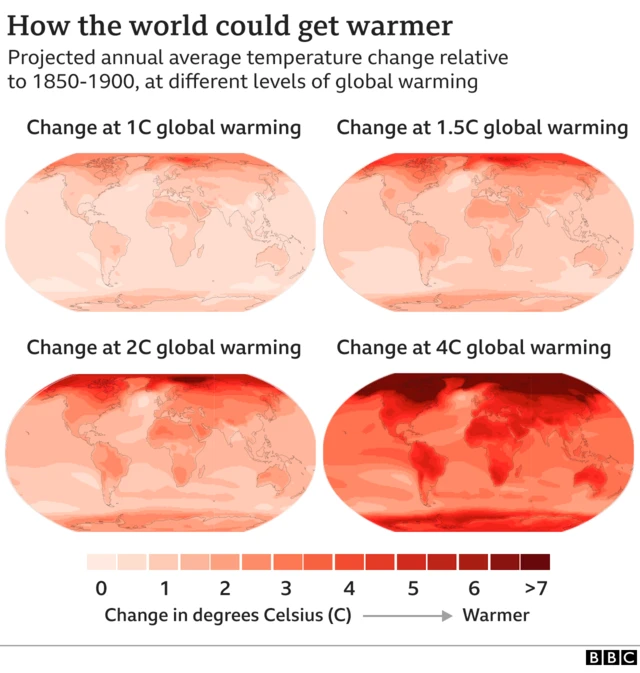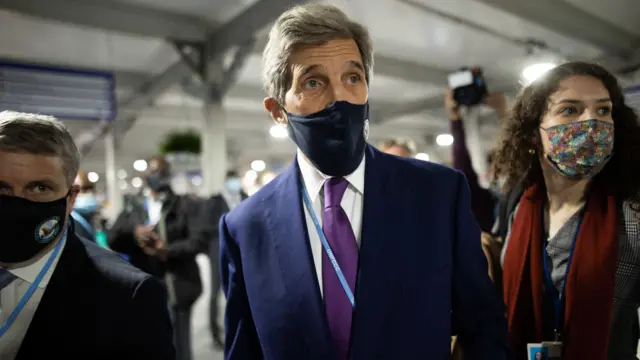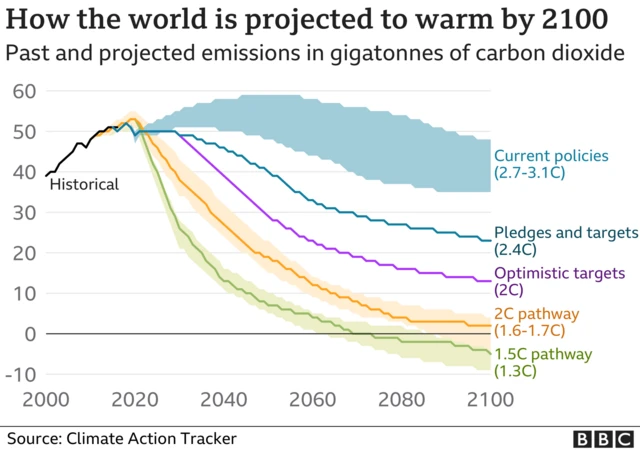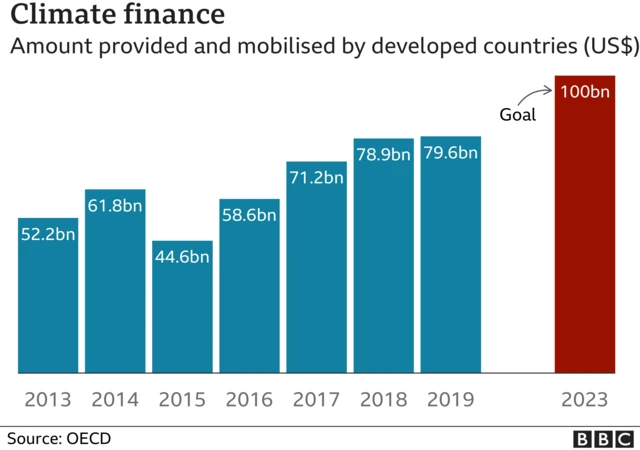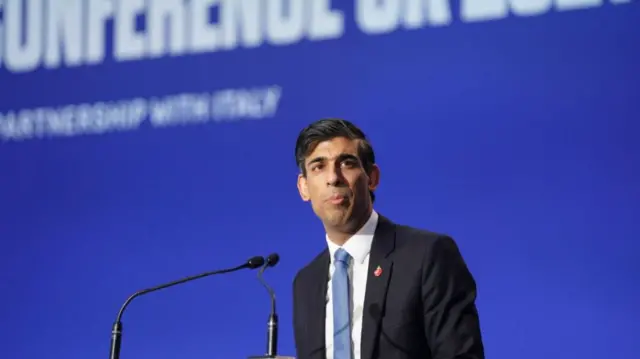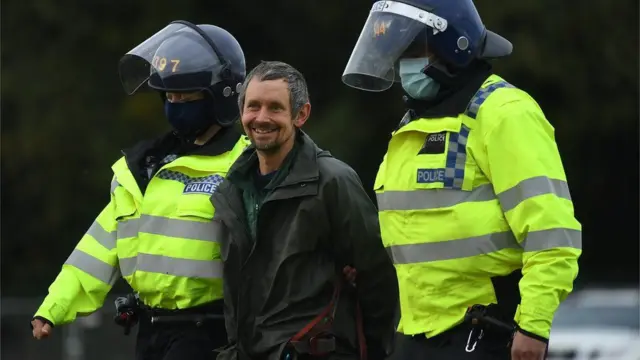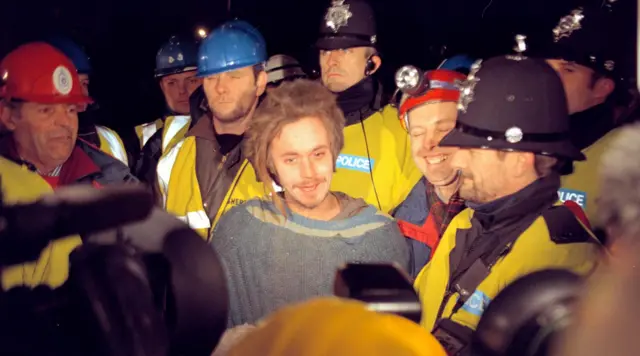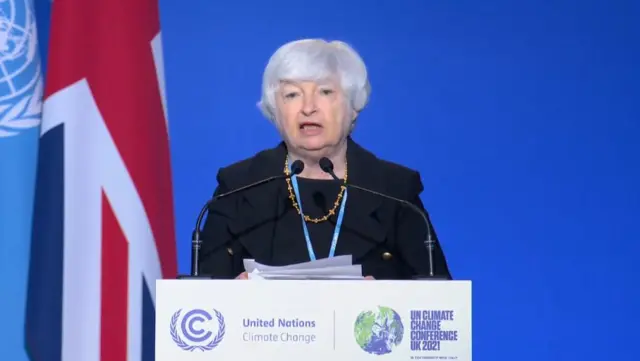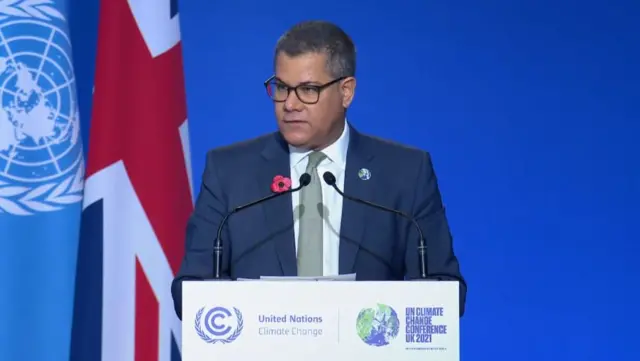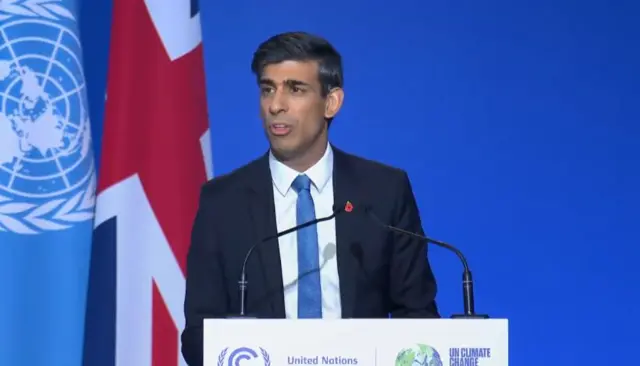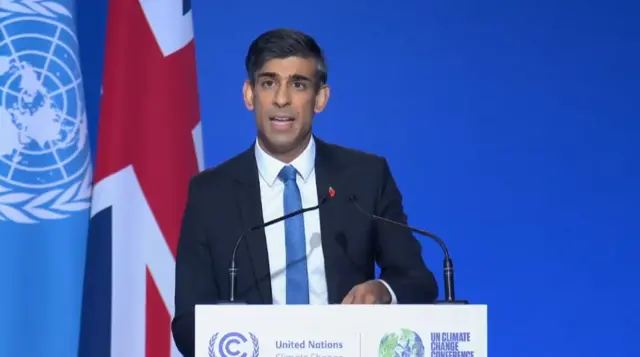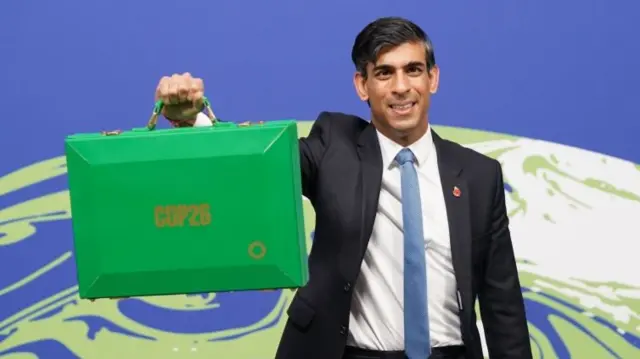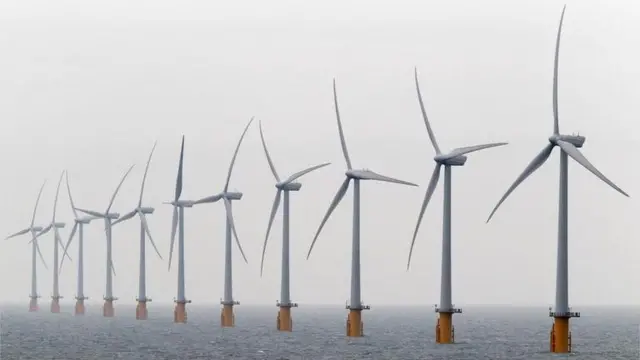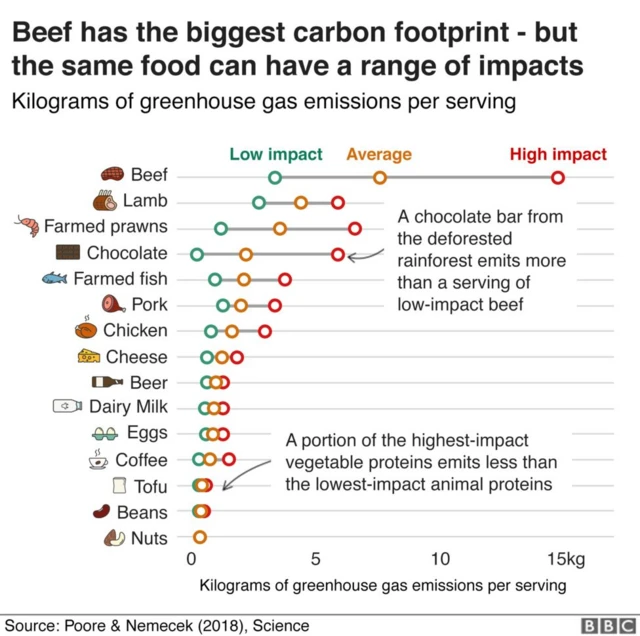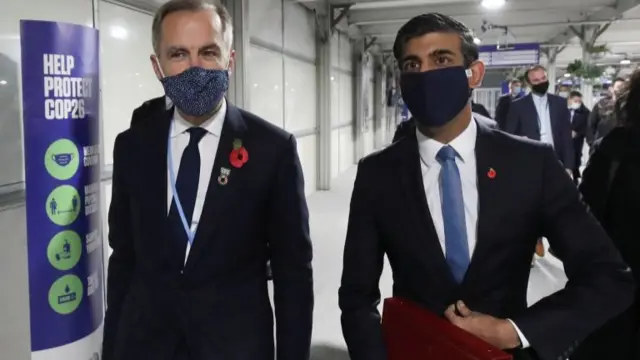Who - historically - are the world's biggest polluters?published at 11:28 GMT 3 November 2021
There are calls for developed countries to do more to fund the fight against climate change as its effects threaten to impact poorer nations first.
"A lot of us that are going to be affected before Shanghai and Miami," the Barbados PM Mia Mottley said this week.
Looking back throughout history - or at least since reliable records began - the US, China and Russia are the top three polluters when it comes to CO2 emissions.
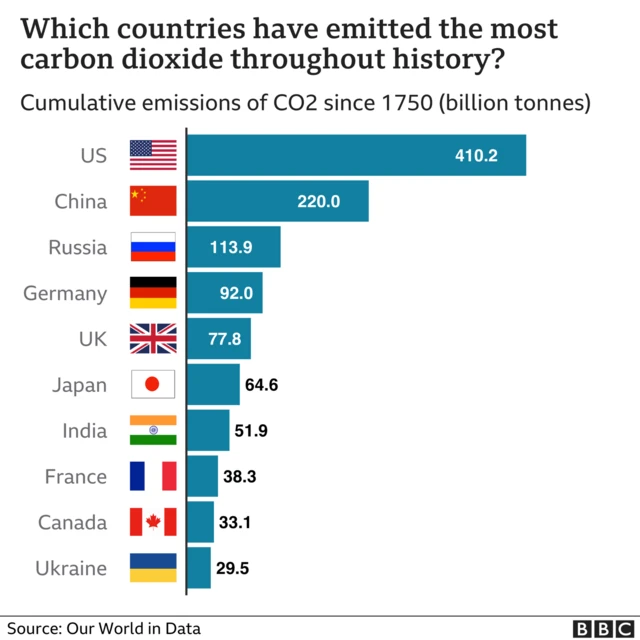
China's emissions per person would be lower than a country such as the UK
Emissions from richer countries rose sharply this year as countries saw a bounce-back from the pandemic.
China, India and Argentina are set to exceed their 2019 emissions levels in 2021.
